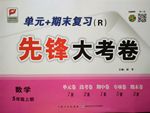题目内容
Trouble was expected at the football match, so the police truned out________force.
A. under B. on C. in D. by
【解析】 C.考查force与介词的搭配。In force大批地。句意:预计足球比赛中会出现麻烦,因此警察大批出现。by force 通过武力;与题意不符。under和on不与force连用。

 中考利剑中考试卷汇编系列答案
中考利剑中考试卷汇编系列答案 教育世家状元卷系列答案
教育世家状元卷系列答案 黄冈课堂作业本系列答案
黄冈课堂作业本系列答案 单元加期末复习先锋大考卷系列答案
单元加期末复习先锋大考卷系列答案Recently a Beijing father sent in a question at an Internet forum (论坛) asking what "PK" meant.
"My family has been watching the 'Super Girl' singing competition TV program. My little daughter asked me what 'PK' meant, but I had no idea," explained the puzzled father.
To a lot of Chinese young people who have been playing games online, it is impossible not to know this term. In such Internet games, "PK" is short for "Player Kill", in which two players fight until one ends the life of the other.
In the case of the "Super Girl" singing competition, "PK" was used to refer to the stage where two singers have to compete with each other for only one chance to go up in competition ranking.
Like this father, Chinese teachers at high schools have also been finding their students' compositions using Internet words which are difficult to understand. A high school teacher from Tianjin asked her students to write compositions with simple language, but they came up with a lot of Internet words that she didn't understand.
"My 'GG' came back this summer from college. He told me I've grown up to be a 'PLMM'. I loved to 'FB' with him together; he always took me to the 'KPM'," went one composition.
"GG" means Ge Ge (Chinese pinyin for brother). "PLMM" refers to Piao Liang Mei Mei (beautiful girl). "FB" means Fu Bai (corruption). "KPM" is short for KFC, Pizza Hut and McDonald's.
Some specialists welcome Internet words as a new development in language.
If you do not even know what a Kong Long (dinosaur, referring to an ugly looking female) or a Qing Wa (frog, referring to an ugly looking male) is, you will possibly be regarded as a Cai Niao!
【小题1】By writing the article, the writer tries to ________ .
| A.explain some Internet language | B.suggest common Internet language |
| C.laugh at the Beijing father | D.draw our attention to Internet language |
| A.Fathers can't possibly know it. | B.The daughter should understand it. |
| C.Online game players may know it. | D."Super Girl" shouldn't have used it. |
| A.are used not only online | B.can be understood very well |
| C.are welcomed by all the people | D.cause trouble to our mother tongue |
| A.A puzzled father | B.Do you speak Internetish? |
| C.Keep away from Internetish | D.Kong Long or Qing Wa? |
Recently a Beijing father sent in a question at an Internet forum (论坛) asking what "PK" meant.
"My family has been watching the 'Super Girl' singing competition TV programme. My little daughter asked me what 'PK' meant, but I had no idea," explained the puzzled father.
To a lot of Chinese young people who have been playing games online, it is impossible not to know this term. In such Internet games, "PK" is short for "Player Kill", in which two players fight until one ends the life of the other.
In the case of the "Super Girl" singing competition, "PK" was used to refer to the stage where two singers have to compete with each other for only one chance to go up in competition ranking.
Like this father, Chinese teachers at high schools have also been finding their students' compositions using Internet jargons which are difficult to understand. A high school teacher from Tianjin asked her students to write compositions with simple language, but they came up with a lot of Internet jargons that she didn't understand.
"My 'GG' came back this summer from college. He told me I've grown up to be a 'PLMM'. I loved to 'FB' with him together; he always took me to the 'KPM'," went one composition.
"GG" means Ge Ge (Chinese pinyin for brother). "PLMM" refers to Piao Liang Mei Mei (beautiful girl). "FB" means Fu Bai (corruption). "KPM" is short for KFC, Pizza Hut and McDonald's.
Some specialists welcome Internet jargons as a new development in language.
If you do not even know what a Kong Long (dinosaur, referring to an ugly looking female) or a Qing Wa (frog, referring to an ugly looking male) is, you will possibly be regarded as a Cai Niao!
1.By writing the article, the writer tries to ________ .
|
A.explain some Internet language |
|
B.suggest common Internet language |
|
C.laugh at the Beijing father |
|
D.draw our attention to Internet language |
2.What does the writer think about the term "PK"?
|
A.Fathers can't possibly know it. |
|
B.The daughter should understand it. |
|
C.Online game players may know it. |
|
D."Super Girl" shouldn't have used it. |
3.The examples of the Beijing father and the Tianjin teacher are used to show that Internet jargons ________ .
|
A.are used not only online |
|
B.can be understood very well |
|
C.are welcomed by all the people |
|
D.cause trouble to our mother tongue |
4.The underlined word "jargons" means " ________ " in Chinese.
|
A.行话 |
B.粗口 |
C.歌词 |
D.趋势 |
Recently a Beijing father sent in a question at an Internet forum (论坛) asking what "PK" meant. "My family has been watching the 'Super Girl' singing competition TV program . My little daughter asked me what 'PK' meant, but I had no idea," explained the puzzled father.
To a lot of Chinese young people who have been playing games online, it is impossible not to know this term. In such Internet games, "PK" is short for "Player Kill", in which two players fight until one ends the life of the other.
In the case of the "Super Girl" singing competition, "PK" was used to refer to the stage where two singers have to compete with each other for only one chance to go up in competition ranking.
Like this father, Chinese teachers at high schools have also been finding their students' compositions using Internet jargons (行话) which are difficult to understand. A high school teacher from Tianjin asked her students to write compositions with simple language, but they came up with a lot of Internet jargons that she didn't understand.
"My 'GG' came back this summer from college. He told me I've grown up to be a 'PLMM'. I loved to 'FB' with him together; he always took me to the 'KPM'," went one composition.
"GG" means Ge Ge (Chinese pinyin for brother). "PLMM" refers to Piao Liang Mei Mei (beautiful girl). "FB" means Fu Bai (corruption). "KPM" is short for KFC, Pizza Hut and McDonald's.
Some specialists welcome Internet jargons as a new development in language.
If you do not even know what a Kong Long (dinosaur, referring to an ugly looking female) or a Qing Wa (frog, referring to an ugly looking male) is, you will possibly be regarded as a Cai Niao!
1.By writing the article, the writer tries to ________ .
|
A.explain some Internet language |
|
B.suggest common Internet language |
|
C.laugh at the Beijing father |
|
D.draw our attention to Internet language |
2.What does the writer think about the term "PK"?
|
A.Fathers can't possibly know it. |
|
B.The daughter should understand it. |
|
C.Online game players may know it. |
|
D."Super Girl" shouldn't have used it. |
3.The examples of the Beijing father and the Tianjin teacher are used to show that Internet jargons ________ .
|
A.are used not only online |
|
B.can be understood very well |
|
C.are welcomed by all the people |
|
D.cause trouble to our mother tongue |
4.What would be the best title for the passage?
|
A.A puzzled father |
|
B.Do you speak Internet-ish? |
|
C.Keep away from Internet-ish |
|
D.Kong Long or Qing Wa? |